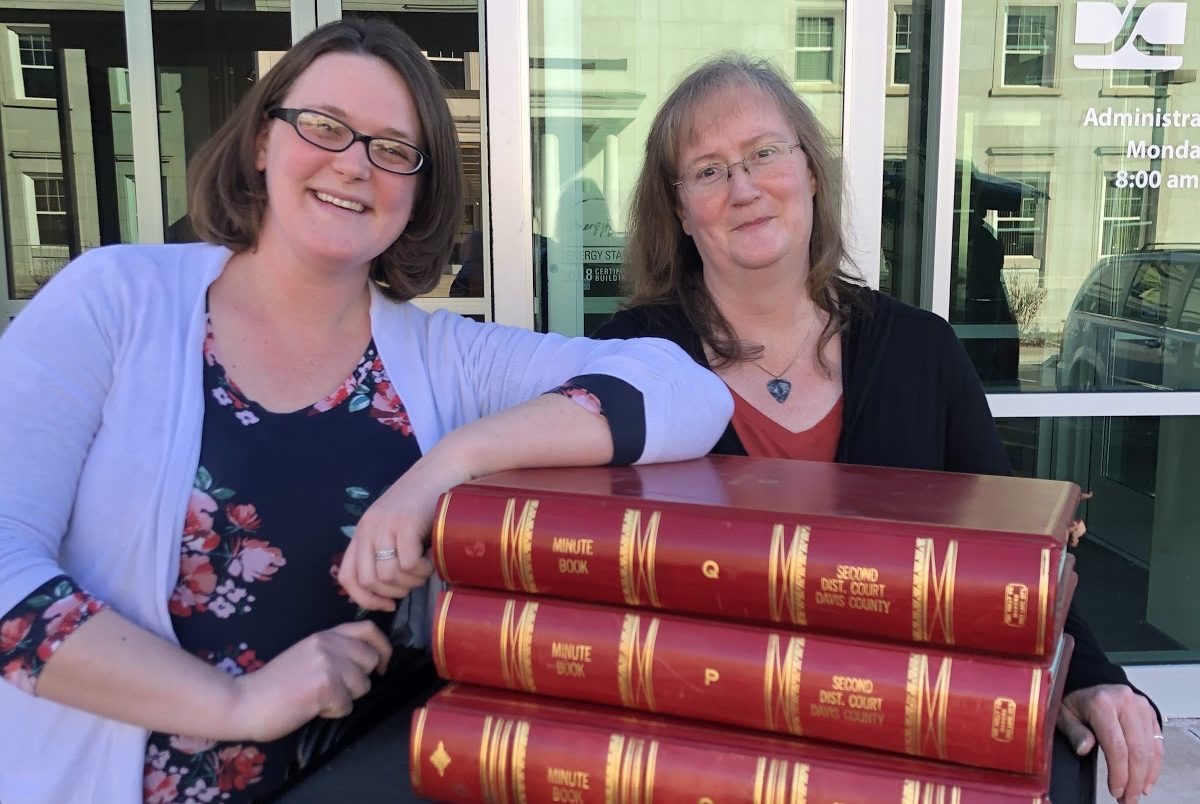
Spotlight on: Davis County Records Division

Records management is better with a team, and the Davis County Clerk/Auditor’s Records Division proves that to be true. The team is made up of unique and talented records officers including: Records Manager Rebecca Abbott, and archivists Jessy Turner and Becky Wright. The team took a moment out of their busy schedules to tell us a little bit about themselves, and answer some questions about the fantastic work they do managing Davis County’s vast assortment of records. From the triumphs of records preservation projects to the horrors of a basement storage room, they’ve seen it all and share their advice for how to sustain a project and maintain your sanity.
Tell us more about yourselves:
Rebecca came to the County from a law-enforcement agency and has a gift for calm and purposeful leadership. Rebecca is a mother of five and a grandmother of two beautiful little babes. Most of her time is spent watching her kids play competitive sports.
Jessy has a master’s degree in library science and experience working in archives, and a talent for creating digital worksheets and spreadsheets that improve processes. Jessy is an avid Disney, Star Wars, and Harry Potter fan. Her unique and very beautiful “traveling” wedding ring is in the shape of Mickey ears.
Becky is a recovering newspaper reporter who still carries a pen with her everywhere. She has a passion for preserving everything from historical documents to antique furniture and cars. Becky is also the chair of the local Old Time Fiddlers chapter and has even shared her talent during the swearing in of Elected Officials.
What has been your most challenging records management project?
One of the most challenging was organizing and clearing out Room 3 in the basement of the Davis County Memorial Courthouse. When the County’s Administration Building opened in 2012, more than one department left behind boxes stored in Room 3 of the old courthouse. Most of the boxes were on shelves, but many boxes – and even loose papers – were scattered on the floor. Examining the documents gave us a good introduction to the various County departments and the work they do. Once the boxes and documents were organized by department, decisions had to be made about what to do with them. This spawned even more projects that included coordinating with many County departments, the Utah State Archives, and even reaching out to totally separate entities. This project was just recently finished and it took approximately two years to complete.
What inspired you to take on this project?
“Inspired” may not be quite the right word for the reason we took the project on, however it did prove to be very educational and we learned many interesting things along the way. The two main reasons for taking on this project were the upcoming renovation of the Memorial Courthouse and the need to preserve the abundance of records in what we lovingly called the “dungeon.” As Becky said, “from the minute the Records team was shown Room 3, we knew it needed to be whipped into shape.”
What helps you stay motivated when the project gets tough?
Becky and Jessy say that the key to staying motivated is “understanding the purpose behind what we’re doing and how it will help the public and staff.” They recommend trying to look for the fun parts of the project, and think about how good it will feel when the project is finished. They also recommend breaking projects into smaller chunks so you can celebrate more milestones. At the very least, they claim that the visual difference made by creating order from chaos is its own reward.
What advice would you offer to other records officers who might consider taking on a similar project?
- Don’t be afraid to ask questions when dealing with records in departments other than your own.
- Gather knowledge about how and why the record is created and used, in addition to what the record is.
- Write down decisions that are made along the way so they can be referred back to, this can help keep the work consistent. Projects often progress with a need to change initial decisions and documenting that along the way turned out to be super helpful.
- Don’t be afraid to let the records go.
- Try and be as methodical and organized as possible.
- Be patient, it will take longer than you think (or want) so you just have to do it one piece at a time.
- Be flexible and open to thinking outside the box.
- Clear communication with all stakeholders is key.
What is your most rewarding records management project?
Becky – Our most rewarding records management project to date is digitizing all 92,799 marriage licenses and 33,000 applications in the Davis County Clerk/Auditor’s care, and rehousing them in archival folders to prolong the life of the paper. This project was intertwined with another of our large goals, which was to pull the many records inventory spreadsheets into one online catalog. The catalog is now available to staff and the public, and descriptions of more records series are being added.
Jessy – Establishing a catalog system for Davis County records. This was a big undertaking which had many moving parts. We are still in the beginning stages which is not to detract from the enormous amount of work up to this point. Eventually, our goal is to have this catalog contain information about the kinds of records Davis County has and where to find them.

Any other thoughts on records management you would like to share?
Becky – Some people assume working in an archive is boring work, but we find it fascinating and exciting. Not only do we get to learn more about the County’s history (yes, we love it!), but we work in a field that is always challenging. We work with every department and solve problems on a daily basis as record management practices and responsibilities evolve.
Jessy – Don’t be afraid to question why things are done a certain way. Teach others in your organization about the importance of managing records well – it is nice to have many people in your corner. When possible, take a small break to look through some of your oldest records- there are always things to be learned from the extra old stuff. Finally, always have a jacket to wear – records like to be cold!
Rebecca – Working in records is often perceived as boring or mundane work, but that is not the case. Records Management is challenging, critical, and even fun (yes, fun!). It is much more than filing pieces of paper away. Records are the key to an organization’s history, financial transactions, legal decisions, evidence of work activities and much more. They provide insight into how an organization or governmental agency is functioning and in a world where transparency is key, they provide confidence.
Recent Posts
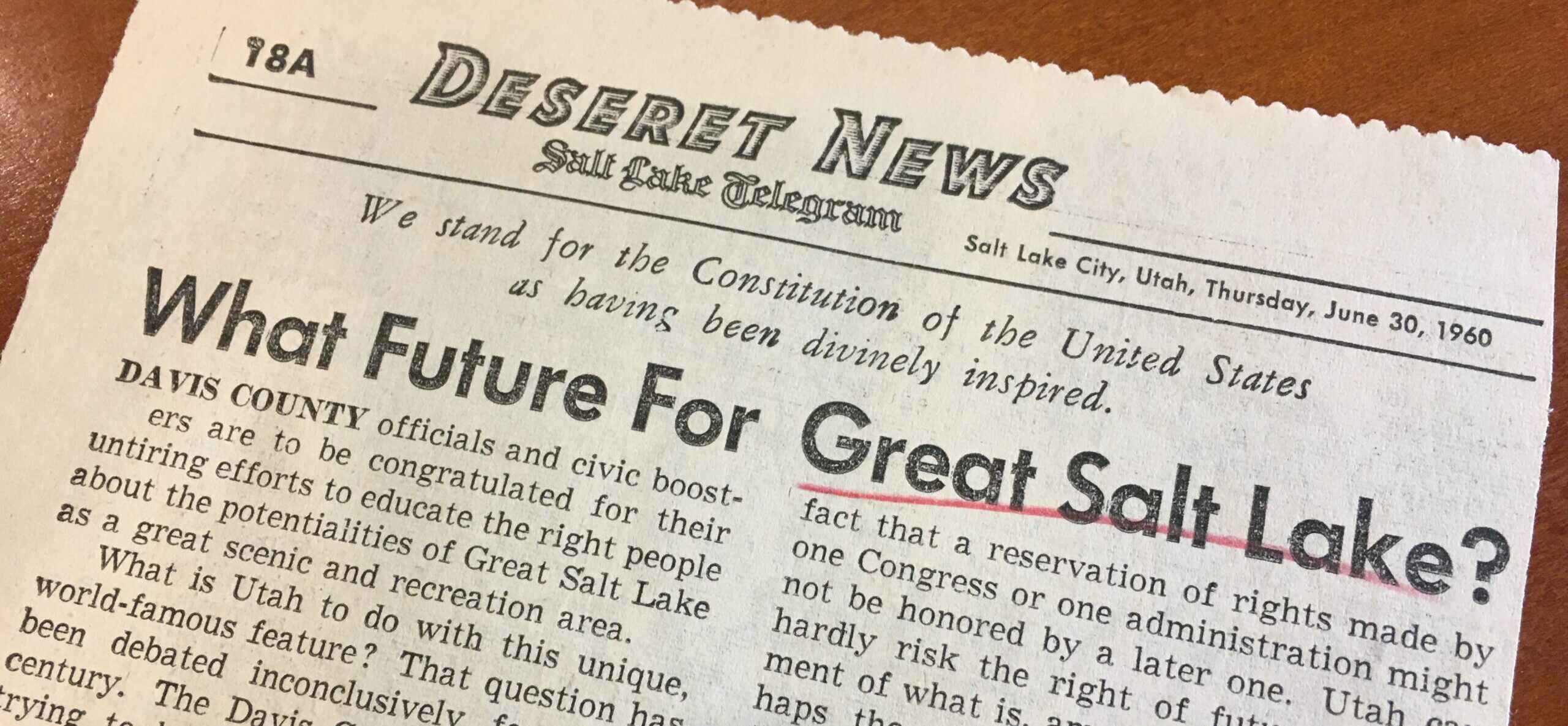
New Finding Aids at the Archives: April 2024
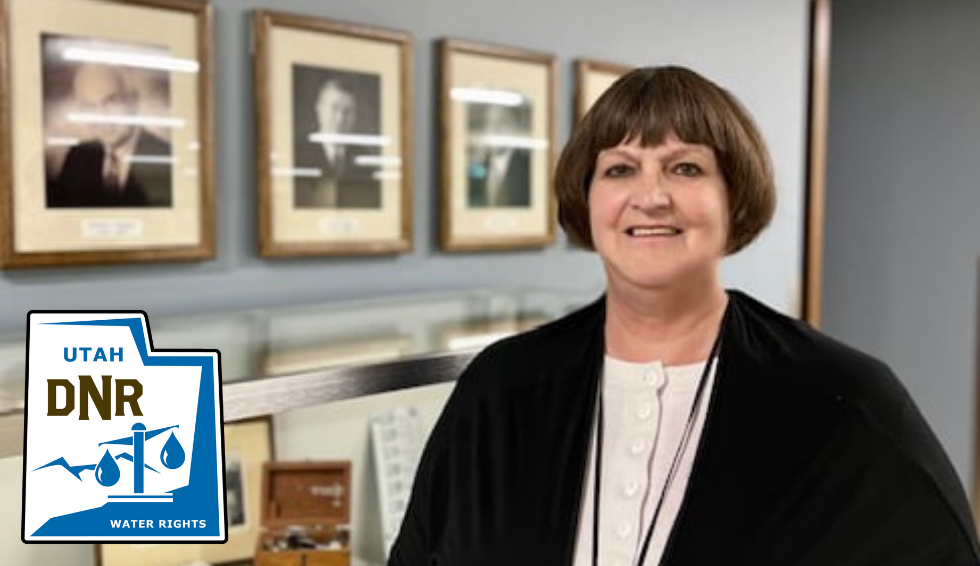
ARO Spotlight: Debbie Berry from the Division of Water Rights

Utah History Day 2024: Archival Research Winners
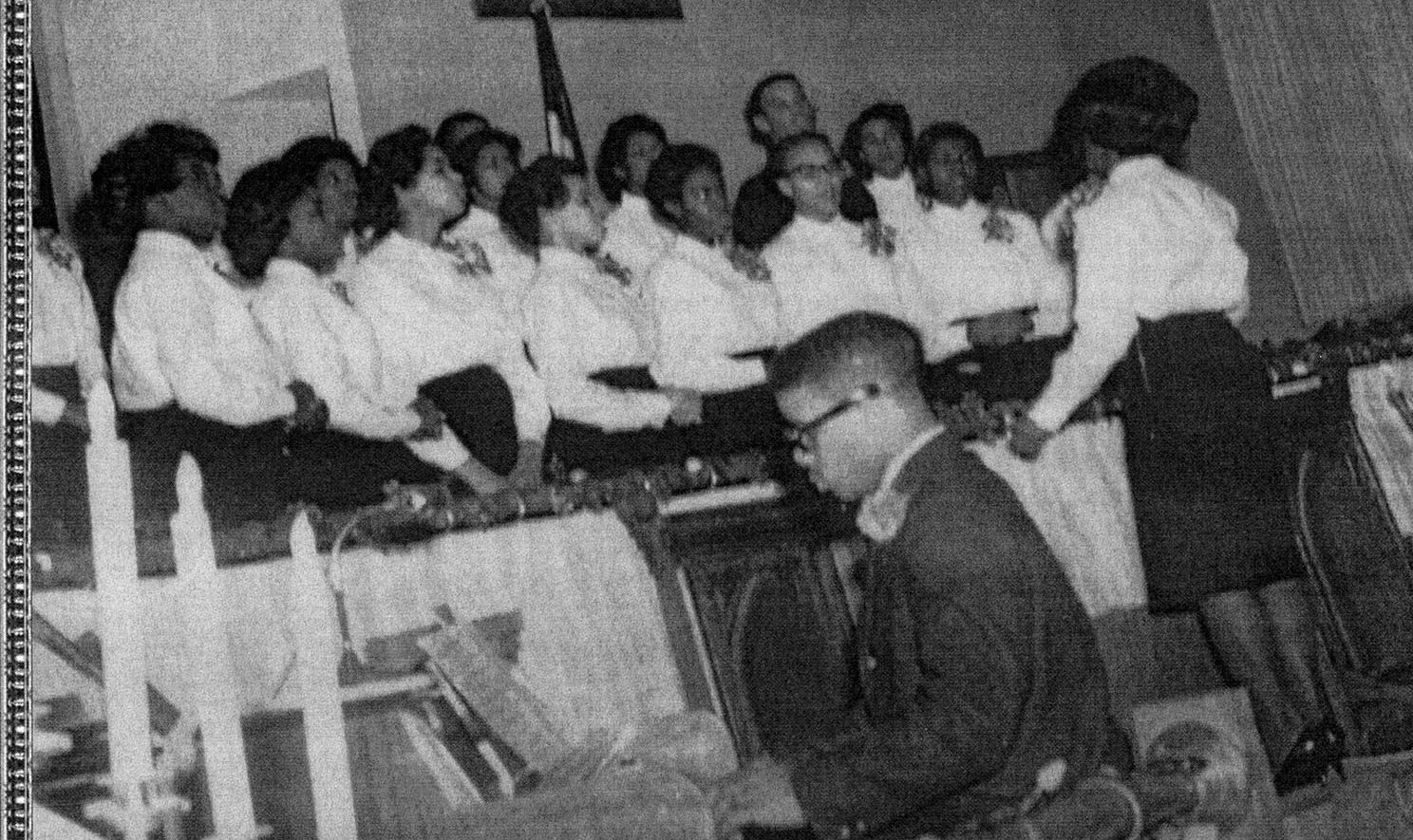
From Pews to Pixels: Weber State’s Stewart Library Digitizes New Zion Baptist Church’s Legacy
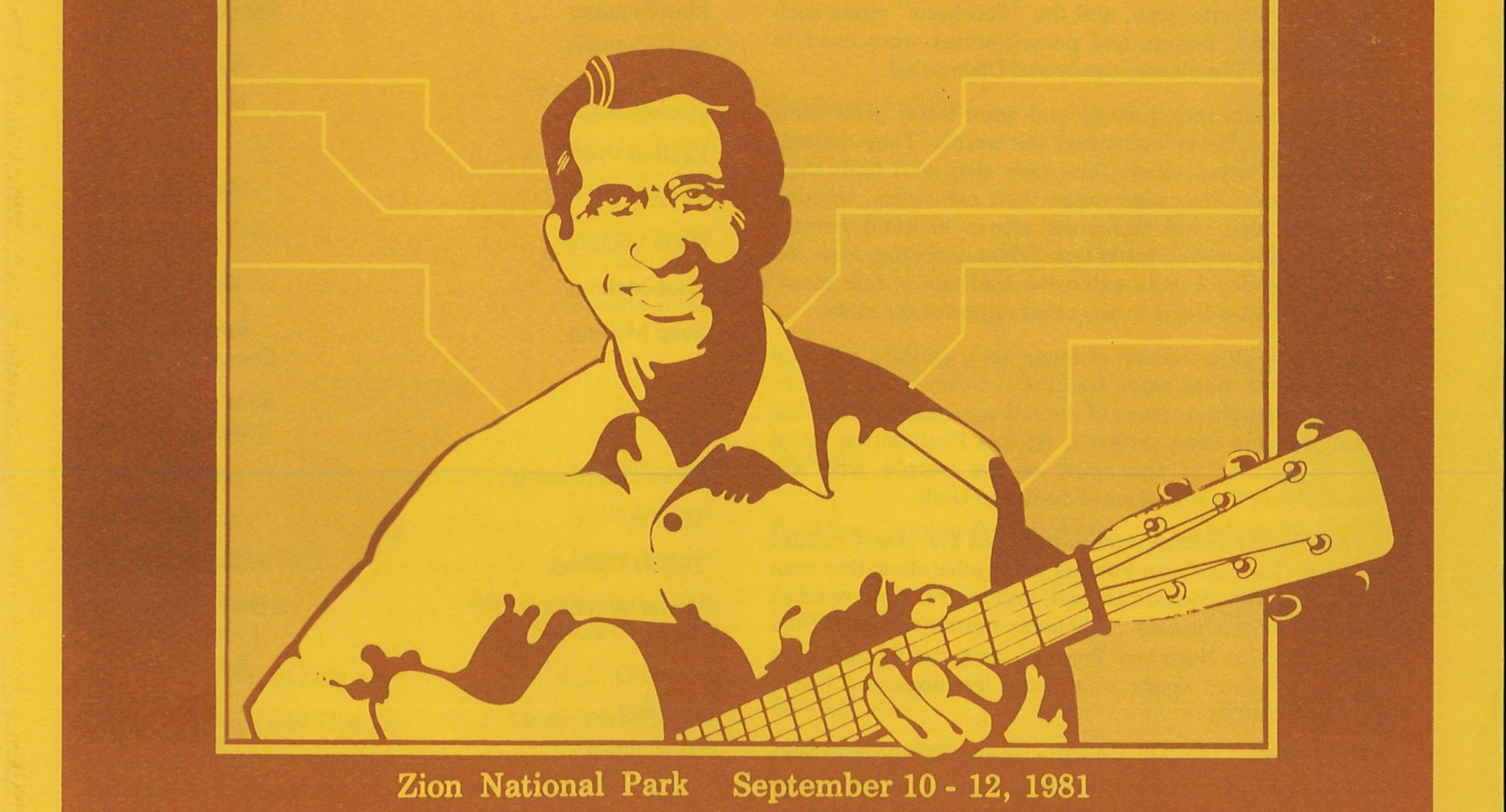
New Finding Aids at the Archives: March 2024
Authors
Categories
- Digital Archives/
- Electronic Records/
- Finding Aids/
- General Retention Schedules/
- GRAMA/
- Guidelines/
- History/
- Legislative Updates/
- News and Events/
- Open Government/
- Records Access/
- Records Management/
- Records Officer Spotlights/
- Research/
- Research Guides/
- State Records Committee/
- Training/
- Uncategorized/
- Utah State Historical Records Advisory Board/